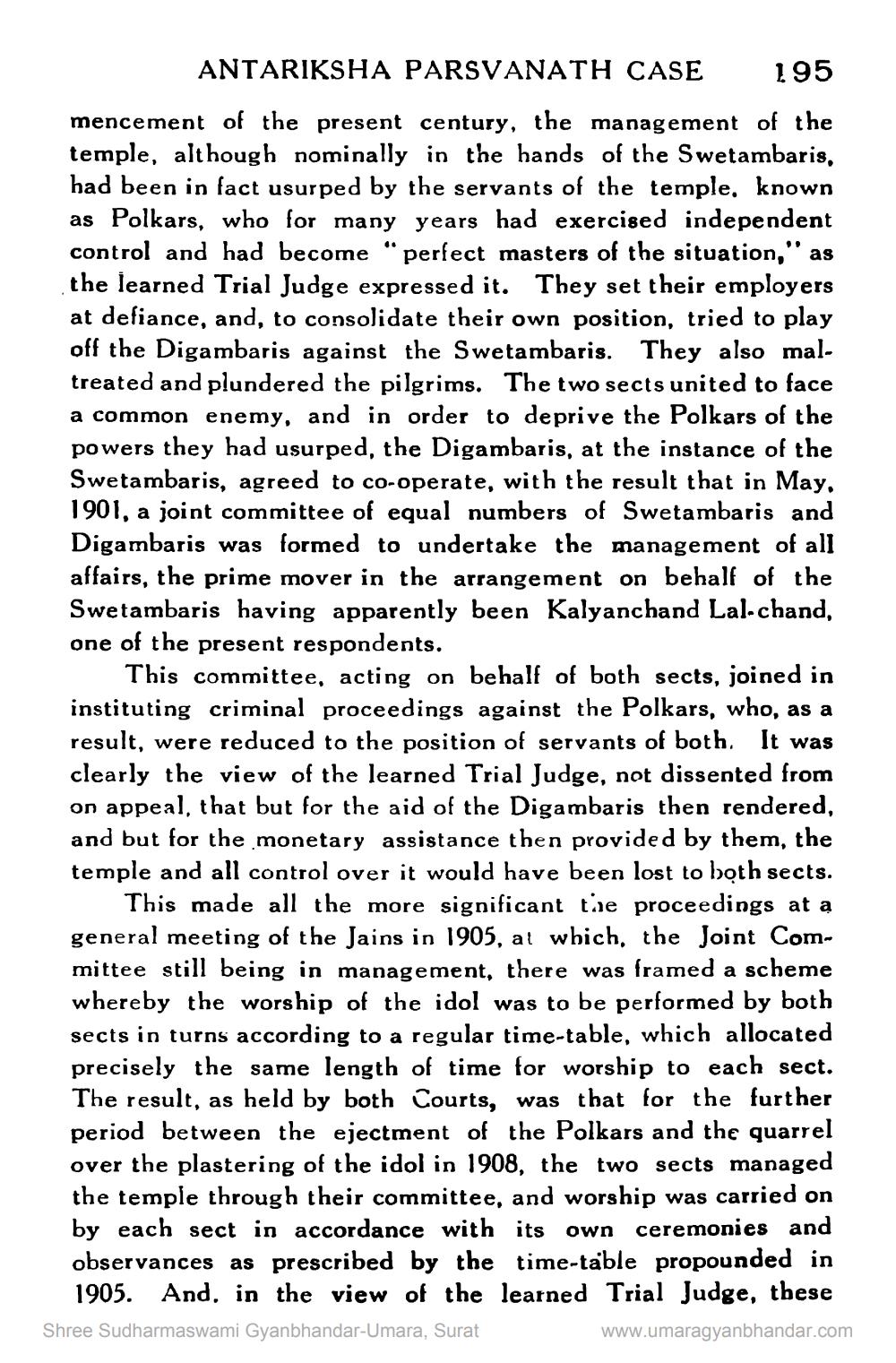________________
ANTARIKSHA PARSVANATH CASE 195 mencement of the present century, the management of the temple, although nominally in the hands of the Swetambaris, had been in fact usurped by the servants of the temple, known as Polkars, who for many years had exercised independent control and had become "perfect masters of the situation," as the learned Trial Judge expressed it. They set their employers at defiance, and, to consolidate their own position, tried to play off the Digambaris against the Swetambaris. They also mal. treated and plundered the pilgrims. The two sects united to face a common enemy, and in order to deprive the Polkars of the powers they had usurped, the Digambaris, at the instance of the Swetambaris, agreed to co-operate, with the result that in May. 1901, a joint committee of equal numbers of Swetambaris and Digambaris was formed to undertake the management of all affairs, the prime mover in the arrangement on behalf of the Swetambaris having apparently been Kalyanchand Lal-chand, one of the present respondents.
This committee, acting on behalf of both sects, joined in instituting criminal proceedings against the Polkars, who, as a result, were reduced to the position of servants of both. It was clearly the view of the learned Trial Judge, not dissented from on appeal, that but for the aid of the Digambaris then rendered, and but for the monetary assistance then provided by them, the temple and all control over it would have been lost to both sects.
This made all the more significant tie proceedings at a general meeting of the Jains in 1905, al which the Joint Committee still being in management, there was framed a scheme whereby the worship of the idol was to be performed by both sects in turns according to a regular time-table, which allocated precisely the same length of time for worship to each sect. The result, as held by both Courts, was that for the further period between the ejectment of the Polkars and the quarrel over the plastering of the idol in 1908, the two sects managed the temple through their committee, and worship was carried on by each sect in accordance with its own ceremonies and observances as prescribed by the time-table propounded in
1905. And, in the view of the learned Trial Judge, these Shree Sudharmaswami Gyanbhandar-Umara, Surat
www.umaragyanbhandar.com




